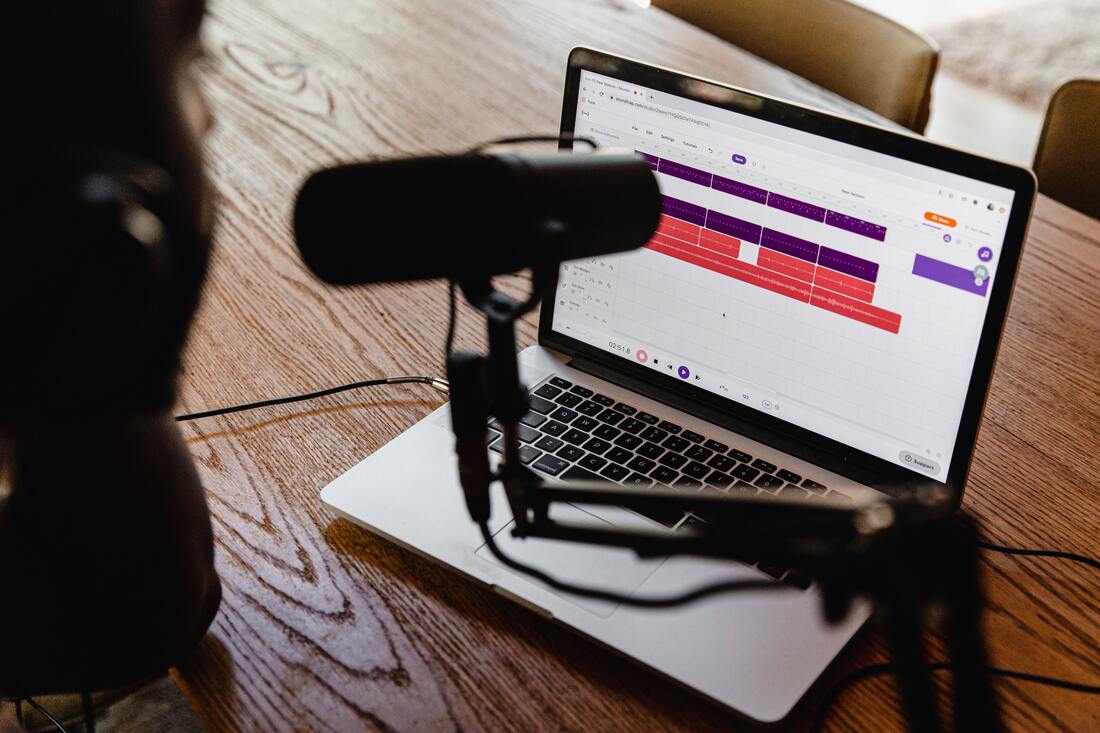|
Audiobooks are growing more than any other publishing mode right now. While the paperback will always have a place in our hearts, there is something to be said for the convenience of the audiobook. What’s more, the unique aspect of hearing the story performed can make it just as cherished as its written counterpart, and therefore a vital addition to any authors published works. Though the process of turning your transcript into an audiobook is a fairly simple one, for first timers it can be daunting, so we’ve created a guide to help those setting out on turning their books into audiobooks. What are the benefits of having an audiobook? Believe it or not, a lot of people only listen to audiobooks. Nowadays, most people don’t have time to sit down and commit to reading 300 pages of a novel. Without an audiobook option, they are excluded from engaging with your work. However, there is also a significant market who will buy a written copy, usually an eBook, specifically to complement their audiobook copy either as a pacesetter or comprehension aid. Similarly, features like Amazon’s Whispersync encourage this dual-medium method by allowing you to switch between kindle and audible formats seamlessly. If you don’t yet have an eBook publication to pair with the audiobook, this may also be a worthy investment which offers a potentially lucrative double sale. How can I get my audiobook produced?
The first important thing to decide is whether you want to produce the recording yourself or hire someone else to do it for you. While this could be any company with access to professional recording and editing facilities, most mainstream audio publisher companies offer access to both editing services and voice actors themselves. If you decide to outsource the production of your audiobook to a publisher, you don’t have to worry about the quality of your recording. Often, publishers hire their own narrators, and while it might be ambitious to expect Stephen Fry to voice your work, big audiobook producers have access to some serious acting talent. Bigger names of course come with higher fees, but the payoff for this is that they can bring some of their own audience to your work. The core advantage of producing completely off your own back is that there are more options for budgeting, as you can source your own narrator, whether professional or not. On the other hand, going through the wider channel of using a company like the brand leader ACX opens the opportunity to link with a larger pool of voice actors. Unsure of where to start on your recording journey? A few examples include ACX, PublishingPush and AudioFactory. What happens in production? Whether you produce your audiobook yourself or outsource the task, there are a few things worth considering. You might need to edit the transcript for changes, such as removing anything visual based. It’s also not uncommon to do an abridged version for the audiobook for particularly long texts. You will also need to decide whether you want just one narrator or multiple (this is most common for novels with various perspectives). Hiring multiple actors for specific dialogue inclusions can be pricey, but if hiring only one it’s important that the actor has the required range for the whole performance. If you decide to self-record, it may be worth renting out a recording studio as opposed to buying the recording equipment yourself (unless you’re planning to record multiple books). It’s also worth considering how long you’ll need to rent out a studio space for. It takes about four to six hours to produce one hour of completed audio. In a finished audiobook the average reading speed is 9300 words an hour or 55 words a minute. This means the average audiobook length of 100,000 words makes for an average running time of 11 hours. When using an outsourced means of production, for example ACX, it typically takes 3 to 8 weeks to get the audiobook finished depending on the length of the book and the producer's schedule. With this avenue the narrator and the publishing companies will do most of the work for you, but you will need to be responsive to approving and informing whoever is selected for narration. What will I pay and how will I be paid? When producing with ACX the payment will usually be covered in the royalties they take, which will typically be 40% for exclusive distribution with audible and 25% for a non-exclusive deal. We recommend you go with the exclusive distribution as this will be where most of your sales come from, ultimately leaving you with more profit. However, if your work has already proven popular in other markets, it’s a good idea to partner with a brand like PublishingPush who offer you 100% royalties--provided you can pay for their high-end production. What after that’s all done? Like any published piece there will be some extra work to be done in terms of marketing the audiobook. Besides that, it’s time to sit back with a cuppa, put your earphones in and enjoy.
0 Comments
Your comment will be posted after it is approved.
Leave a Reply. |
Archives
April 2024
Categories
All
|



 RSS Feed
RSS Feed

